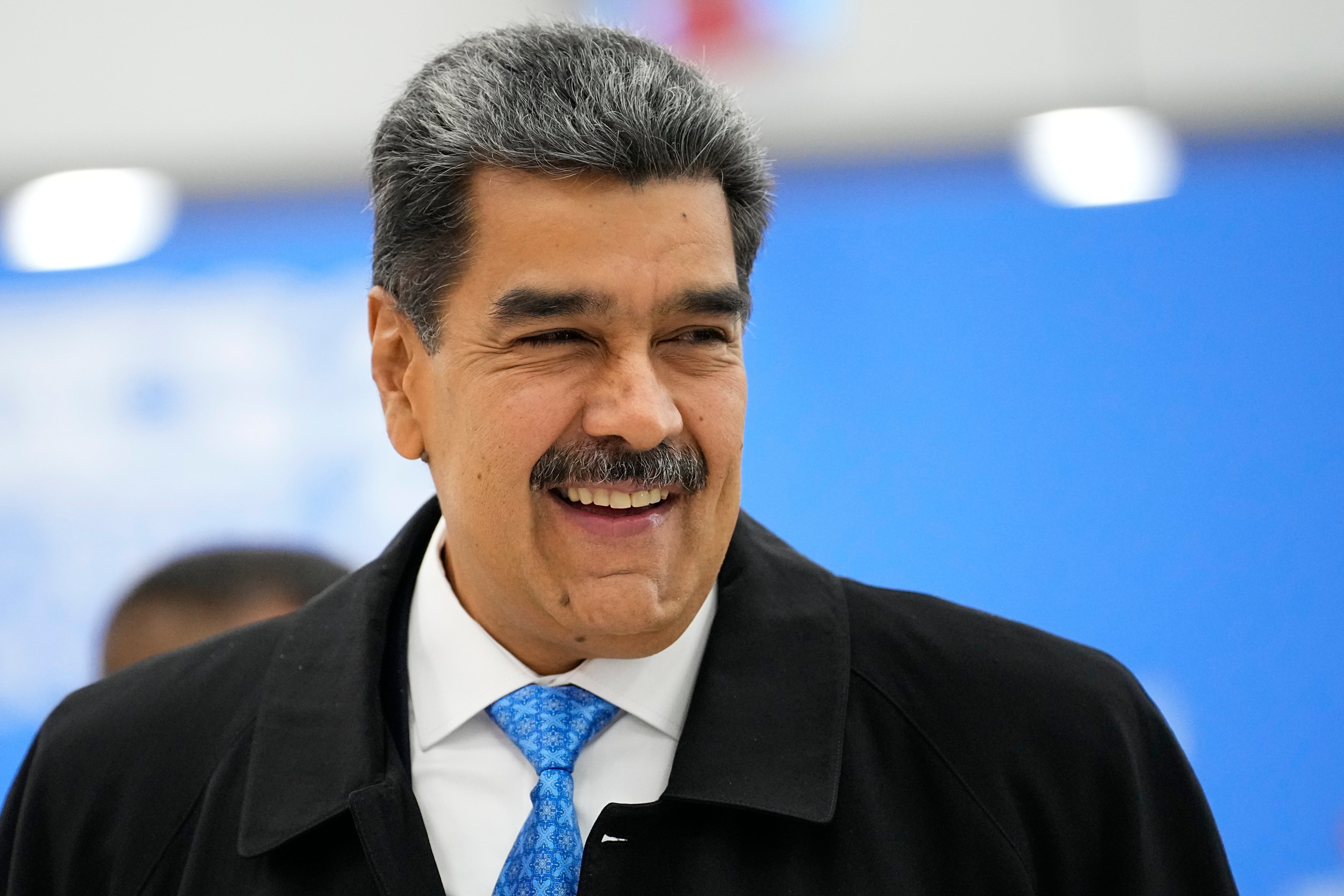Venezuela's rejection from developing economies alliance heightens tensions with member Brazil
Venezuela’s government is doubling down on its attacks against Brazilian foreign relations officials, accusing them of jeopardizing the diplomatic relations between the neighboring South American countries by acting on behalf of the interests of the United States

Your support helps us to tell the story
From reproductive rights to climate change to Big Tech, The Independent is on the ground when the story is developing. Whether it's investigating the financials of Elon Musk's pro-Trump PAC or producing our latest documentary, 'The A Word', which shines a light on the American women fighting for reproductive rights, we know how important it is to parse out the facts from the messaging.
At such a critical moment in US history, we need reporters on the ground. Your donation allows us to keep sending journalists to speak to both sides of the story.
The Independent is trusted by Americans across the entire political spectrum. And unlike many other quality news outlets, we choose not to lock Americans out of our reporting and analysis with paywalls. We believe quality journalism should be available to everyone, paid for by those who can afford it.
Your support makes all the difference.Venezuela’s government on Wednesday doubled down on its attacks against Brazilian foreign relations officials, accusing them of jeopardizing diplomatic relations between the neighboring South American countries by acting on behalf of the interests of the United States.
The broadsides from the government of President Nicolás Maduro came a day after a top foreign policy adviser to Brazil’s president said the country had not supported Venezuela’s bid to join the BRICS bloc of developing economies at the group’s recent summit in Russia. That move added to the monthslong tensions between both countries over the disputed results of Venezuela’s July presidential election and subsequent calls for transparency from Brazil and other nations.
Venezuela’s Foreign Relations Ministry said in a statement it had summoned Brazil’s chargé d’affaires in Venezuela, Breno Hermann, to “express its strongest rejection of the recurrent interventionist and rude statements of spokespersons authorized by the Brazilian government.” Brazil's embassy in Caracas, the capital, declined to comment.
In the statement, the ministry accused Celso Amorim, Brazil’s former foreign affairs minister and a special adviser to President Luiz Inacio Lula da Silva, of acting “like a messenger of American imperialism” by “issuing value judgments on processes that only correspond to Venezuelans and their democratic institutions.” It added that his actions are “threatening the ties that unite both countries.”
Amorim on Tuesday in a hearing before Brazilian lawmakers acknowledged “discomfort” between the two countries, attributing it to the Maduro government's refusal to publish detailed election results supporting the victory that electoral authorities handed the president. He later said that an improvement of the diplomatic relations "will depend on actions” taken by Venezuela, but he did not offer any specifics.
Brazil’s Foreign Ministry in Brasilia did not immediately respond to a request for comment from The Associated Press.
Venezuela's electoral authorities claimed they could not publish the detailed results because their website was hacked. At the same time, the main opposition coalition secured vote tally sheets from more than 80% of the electronic voting machines used across the country, published them online and declared that its candidate, former diplomat Edmundo González, had defeated Maduro by a landslide.
In the days after the July 28 election, Lula, Colombian President Gustavo Petro and then-Mexican President Andrés Manuel López Obrador – all leftists and friendly with Maduro – inserted themselves into Venezuela’s election standoff to attempt a peacemaking effort. But it went nowhere, and Maduro has since consolidated his rule, reshuffled his Cabinet and jailed more than 2,000 opponents.
The BRICS bloc, which initially included Brazil, Russia, India, China and South Africa, has expanded to embrace Iran, Egypt, Ethiopia, the United Arab Emirates and Saudi Arabia. Brazil opposed including Venezuela at the group’s summit earlier this month.
“Brazil does not want an indefinite expansion,” Amorim told lawmakers. “Brazil believes its members should be countries with influence that can help represent the region. And Venezuela today does not meet these conditions, in our opinion. Now, that isn’t a veto; that was expressed. And there, decisions are by consensus.”
Venezuela's Foreign Affairs Ministry characterized the move as “irrational behavior” and likened it to the economic sanctions that the U.S. imposed against the South American country.